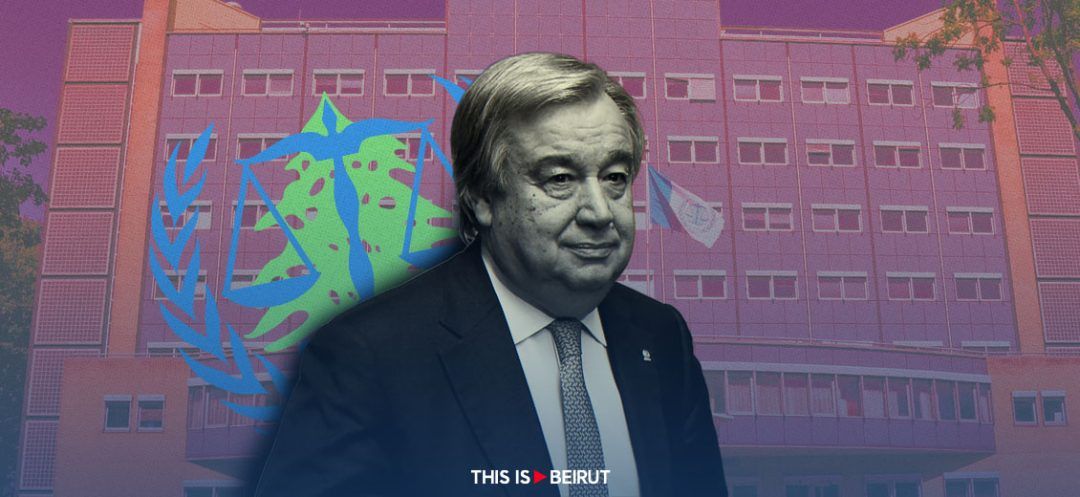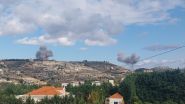
Since the end of 2022, the Special Tribunal for Lebanon has been virtually at a standstill. The recent announcement by Secretary-General of the United Nations António Guterres, declaring the cessation of its activities due to lack of funding, has irrevocably sealed its fate. Indeed, since the financial crisis of October 2019, Lebanon has been unable to cover its share, representing 49% of the total budget of the Tribunal. Furthermore, the other countries financing the remaining 51% are no longer keen on continuing their contributions. It is worth noting that the annual funding cost is approximately $67 million, with total costs reaching around $800 million since the start of the Tribunal's activities in March 2009.
According to a source within the Tribunal, Guterres's decision is legally questionable, for the Tribunal cannot be closed by a unilateral decision of the Secretary-General. It is the Tribunal's prerogative to declare the completion of its missions, and only then can it announce its closure.
The Special Tribunal for Lebanon, established to prosecute those responsible for the February 14, 2005 assassination that led to the death of Lebanese Prime Minister Rafic Hariri, convicted Salim Ayyash, Hussein Oneissi and Hassan Habib Merhi, all members of Hezbollah, in absentia. Currently on the run and subject to international arrest warrants, they were sentenced to five concurrent life sentences. Additionally, an indictment was issued for related offenses linked to the Hariri assassination, including the attempted assassination of Marwan Hamade, the assassination of Georges Hawi and the attempted assassination of Elias el-Murr. Although Salim Ayyash was implicated in the Rafic Hariri assassination, trials scheduled for June 2021 were halted due to insufficient funding. Consequently, uncertainties remain regarding the fate of trials related to these three cases, given the evidence of Salim Ayyash's involvement in these operations.
On another note, the Tribunal's archives have been relocated to the headquarters of the International Organization in New York and will not be handed over to any other entity. Moreover, individuals possessing documents, especially those pertaining to the cases of Hamade, Hawi and Murr, will be required to surrender them to the United Nations.
Regrettably, the Special Tribunal for Lebanon, created to end the culture of impunity, fell short of achieving this goal. Assassinations persisted, and defamation campaigns against the Tribunal and its activities endured. Much criticism has been leveled against the Tribunal, arguing that it targeted individuals rather than implicating Hezbollah and its leadership. Moreover, some claim that the results obtained did not justify the efforts and expenses incurred. However, these critics do not seem to grasp that the Tribunal's regulations prohibit it from convicting political parties and their leaders. Instead, it can render individual convictions, as demonstrated in the Hariri case, where Hezbollah members were tried and convicted.
According to a source within the Tribunal, Guterres's decision is legally questionable, for the Tribunal cannot be closed by a unilateral decision of the Secretary-General. It is the Tribunal's prerogative to declare the completion of its missions, and only then can it announce its closure.
The Special Tribunal for Lebanon, established to prosecute those responsible for the February 14, 2005 assassination that led to the death of Lebanese Prime Minister Rafic Hariri, convicted Salim Ayyash, Hussein Oneissi and Hassan Habib Merhi, all members of Hezbollah, in absentia. Currently on the run and subject to international arrest warrants, they were sentenced to five concurrent life sentences. Additionally, an indictment was issued for related offenses linked to the Hariri assassination, including the attempted assassination of Marwan Hamade, the assassination of Georges Hawi and the attempted assassination of Elias el-Murr. Although Salim Ayyash was implicated in the Rafic Hariri assassination, trials scheduled for June 2021 were halted due to insufficient funding. Consequently, uncertainties remain regarding the fate of trials related to these three cases, given the evidence of Salim Ayyash's involvement in these operations.
On another note, the Tribunal's archives have been relocated to the headquarters of the International Organization in New York and will not be handed over to any other entity. Moreover, individuals possessing documents, especially those pertaining to the cases of Hamade, Hawi and Murr, will be required to surrender them to the United Nations.
Regrettably, the Special Tribunal for Lebanon, created to end the culture of impunity, fell short of achieving this goal. Assassinations persisted, and defamation campaigns against the Tribunal and its activities endured. Much criticism has been leveled against the Tribunal, arguing that it targeted individuals rather than implicating Hezbollah and its leadership. Moreover, some claim that the results obtained did not justify the efforts and expenses incurred. However, these critics do not seem to grasp that the Tribunal's regulations prohibit it from convicting political parties and their leaders. Instead, it can render individual convictions, as demonstrated in the Hariri case, where Hezbollah members were tried and convicted.
Read more



Comments